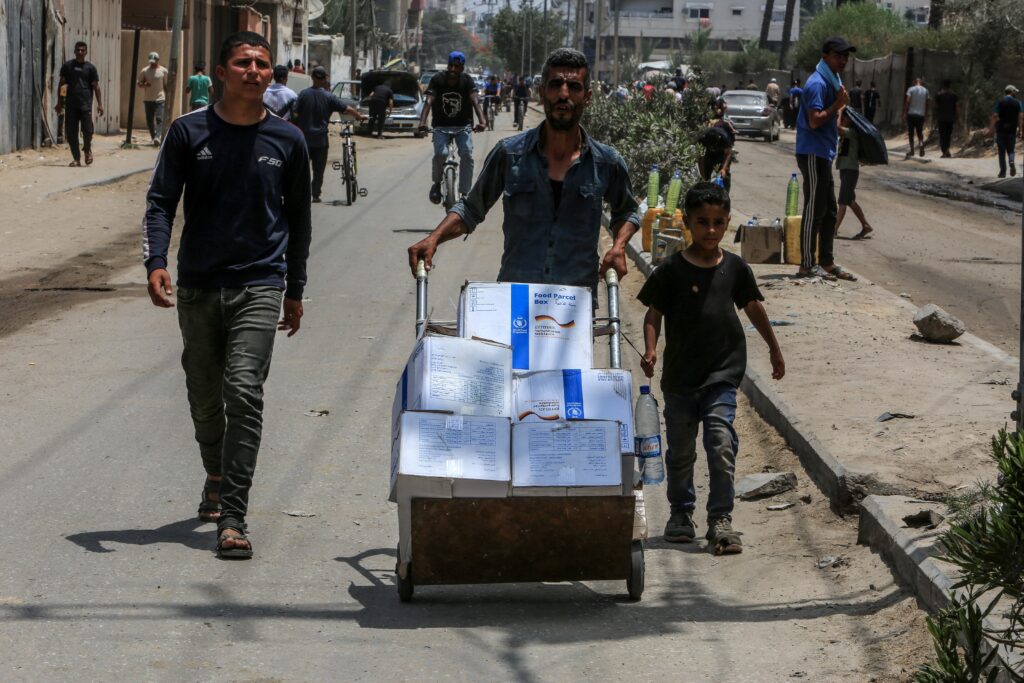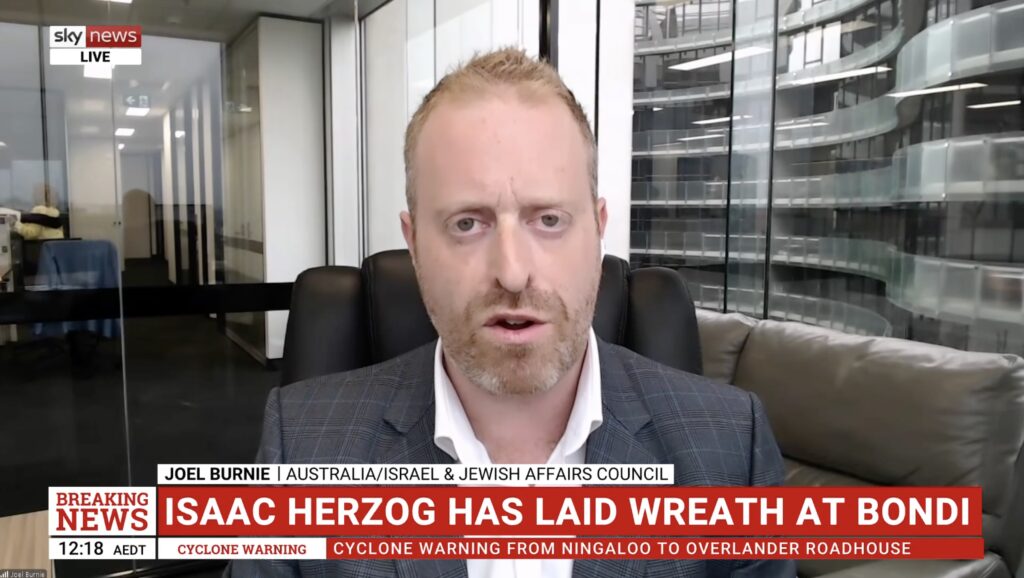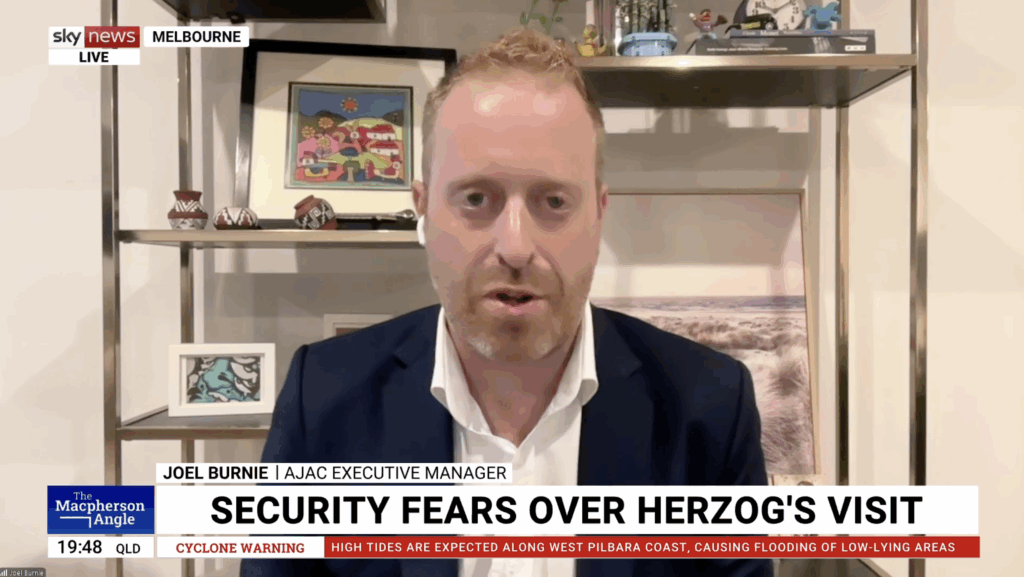IN THE MEDIA
No real peace possible until Hamas rockets cease
January 16, 2009 | Colin Rubenstein
Colin Rubenstein
The Canberra Times, January 16, 2009
As the international community contemplates efforts to end the current fighting in Gaza, it is crucial to understand the major barrier to an eventual two-state Israeli-Palestinian resolution is an unrepentant Hamas continuing to control Gaza as a base to attack Israel.
Here’s why:
First, Hamas controls half the Palestinian people and utterly rejects any long-term coexistence with Israel. It only wants a Palestinian state in Gaza and the West Bank as a platform to continue to attempt to destroy Israel and replace it with an Islamist state. Israel cannot make peace with the Palestinians as long as Hamas keeps Gaza out of any peace agreement.
Second, Hamas is funded, armed and increasingly trained by Iran and/or its ally Syria. Iran’s leaders do not want Israeli-Palestinian peace and insist repeatedly that ”Israel must be wiped off the map”.
Third, not only has Hamas fired thousands of rockets at towns in Israel in recent years, the range keeps increasing thanks to smuggled weaponry and expertise provided largely by Iran. This makes normal life all but impossible in more and more of Israel.
Tragically, were it not for Hamas, prospects for an Israeli-Palestinian two-state resolution would look positive. Every Israeli government over the past decade has said a lasting two-state resolution is in Israel’s interests. Outgoing Prime Minister Ehud Olmert has said that establishing a Palestinian state is crucial to Israel’s future. Israeli public opinion largely agrees.
Olmert and democratically elected Palestinian President Mahmoud Abbas, whose Fatah party runs the West Bank, have a good relationship. Peace talks between their representatives were reportedly going well. Economic and other conditions in the West Bank are improving. The rule of thugs is being dismantled in the cities such as Jenin by American-trained Palestinian security forces. Israeli roadblocks are being removed.
But Hamas thwarts any hopes of a final peace. The outcomes of Israel’s 2005 total withdrawal from Gaza make this impossible. Basically, Hamas dramatically increased rocket and mortar fire from Gaza, established rocket factories, and began massive arms smuggling through tunnels under the Gaza-Egypt border. It won a plurality of votes in the 2006 election seizing complete power in a violent coup in 2007. Then the rocket fire increased still more, and Hamas made an all-out effort to smuggle and build longer-range rockets.
Initially, few Israeli towns faced regular bombardment. Today, over one million Israelis, more than a seventh of the country, live in rocket range, and frequently have normal life made impossible with sirens giving only seconds to reach bomb shelters.
The nightmare scenario for Israelis would be a similar situation on the West Bank. Rockets fired from there could make normal life effectively impossible for almost every Israeli and close Israel’s only international airport. So until the rocket threat is met, territorial withdrawals on the West Bank look impossible.
Most Arab leaders fully understand this. That’s why, outside Iran and its ally Syria, most Arab authorities, including in Egypt, Saudi Arabia and the Palestinian Authority, have either quietly or openly let it be known that while they deplore the current violence, they largely blame Hamas.
So how can peace be advanced after the current fighting ends? International arrangements must be put in place, with Egypt’s help, to verifiably stop the flow of arms and Iranian money to Hamas, ideally, involving some renewed role for Palestinian Authority forces along the borders. Also, as Egypt’s President Hosni Mubarak reportedly told a European Union delegation, Hamas must not be allowed to ”win” the current confrontation. That is, there must not be a return to bloody business as usual. Hamas must face consequences, recognised internationally as valid, if it fires rockets. Its demands that Israel and Egypt allow completely open borders cannot be met the borders should only open to the extent Hamas refrains from actual violence or preparations for violence. (Of course, this does not apply to humanitarian aid.) If they act as in a state at war with their neighbours, they must be treated as being in one.
Some commentators argue that Israel’s actions in Gaza will damage peace prospects by angering and embittering Palestinians. But there were no real peace prospects as along as Hamas was able to wage a rocket war against Israeli civilians with impunity. Israel’s actions in weakening Hamas have made it possible to break the current impasse. Now the international community must craft a durable ceasefire that makes a genuine peace process possible again.
Tags: Iraq





